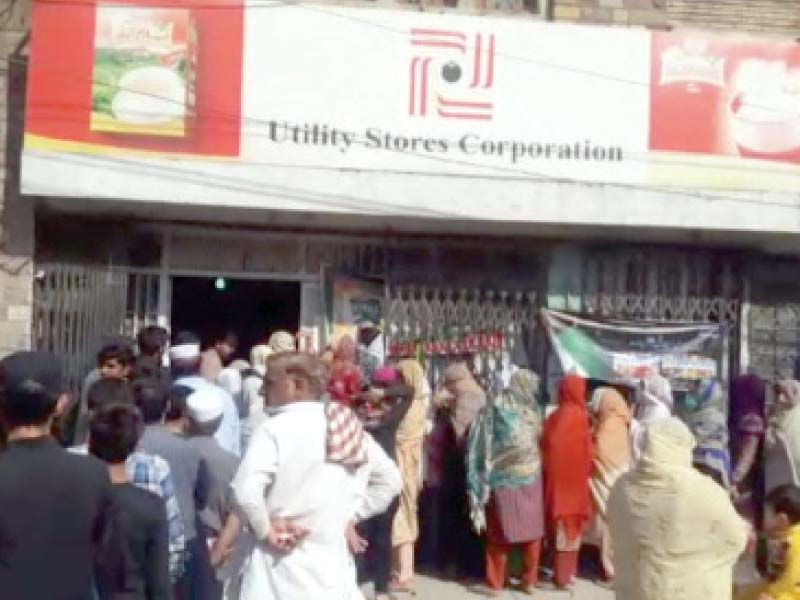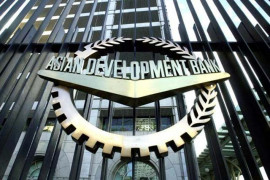
Where back-breaking inflation was enough to demoralise the average citizen, the shortage of subsidised rations at utility stores has worsened their plight, as many resent travelling long distances and waiting in endless queues, only to return home empty handed.
During the past year, unprecedented spikes in the costs of basic commodities like flour, ghee and rice have forced a large segment of the country’s population to turn to utility stores, which offer subsidised rations at prices below the market price.
This growing influx of buyers, however, has not been accommodated well by the utility stores which fail to regulate the supply of essential food items, like flour, causing agitation among the citizens, who return home empty handed after waiting in long queues for hours in the insufferable heat.
“I stood in long queues for several days but could not buy flour or ghee from the utility store near our house,” bemoaned Rabia, a resident of Punjab Colony, whose husband, a daily wager, is the sole breadwinner of the house and cannot afford to purchase ration from the grocery store, which is much pricier.
Similarly, Khursheed, a resident of Burns Road, too was unable to find flour at any utility store in Karachi and felt that the plight of low-income citizens to fill their bellies, was not addressed adequately by the welfare efforts of the state. “The basic need of the masses right now is food.
However, there is neither any uniformity in the prices of food items nor any regularity in their supply,” said Khursheed, who called out the federal government for its inefficient management of the subsided flour scheme.
Another local, Arif, a resident of Christian Colony highlighted the fact that not only were utility stores short on flour and other essentials, but they were also scattered across the city and had no facility for shade or cool water during the summers. “The utility store that I buy groceries from is located outside our area.
I have to spend Rs 80 as a two-way fare to reach the store, only to sweat in long queues outside without any shade or cool water.
When the government cannot provide flour and other subsidised items to the poor people on time, why does it announce these schemes in the first place?”
According to Dr Sabir Michael, a social affairs expert, the crux of the dilemma lay in the fact that the handful of utility stores available in the city were not sufficient to meet the growing citywide demand for cheaper food items.
“Currently, utility stores only facilitate roughly 2 per cent of the country’s population.
There is a dire need to expand and modernise the utility stores network so that more needy people can be covered by them,” advised Dr. Michael.
Economists however are of the opinion that increasing the number of utility stores in the city would not be enough to combat food insecurity among the populace. “The utility store model followed in our country is inherently flawed.
The government should offer direct subsidies to low-income groups, instead of subsidising food items, which cannot be distributed evenly across all groups,” opined Abid Hassan, an economist.
Building on Hassan’s proposition, Farhan Bukhari, an expert in economic affairs said, “to bring real improvement in food stores, the government must reform the agriculture system so that the supply of agricultural products is balanced with the demand and the prices remain consistent,” he asserted.
Speaking to the Express Tribune on the matter, a spokesman for the utility stores network said, “Mega utility stores will soon be set up in big cities, and awning and water cooler installations will be set up at other stores,” he assured.



















COMMENTS
Comments are moderated and generally will be posted if they are on-topic and not abusive.
For more information, please see our Comments FAQ